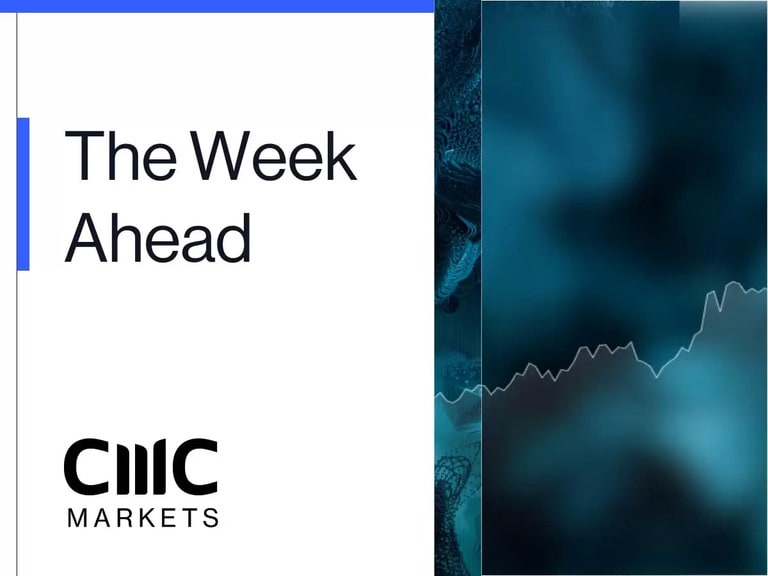Having got off to a positive start to the week on Monday, the last two days have been disappointing ones for European markets. Yesterday’s weakness was driven by a surge in energy prices, which in turn is prompting concerns that rising prices will slow an already fragile recovery, by eroding disposable income for consumers. We could also see business profit margins getting hit as the costs of production, as well as transportation go up.
US markets, on the other hand managed to see a smart rebound, with the S&P500 rebounding off technical support at the 50-day MA, after European markets had closed. This turnaround in the US, hasn’t translated into a positive Asia session, which are struggling on the back of concerns over the Chinese economy, as well as regulation. In Europe, we still look set for a positive open, despite the weak lead from Asia, and given the current uncertainty it’s hard to escape the feeling that investors are struggling to find a narrative to justify pushing stocks higher.
It’s all a big contrast to the optimism of the early summer, when the reopening trade for the northern hemisphere was prompting concern about an economic overheating. Now there appears to be a distinct chill in the air, with bond yields starting to slip back on the premise that the Fed may well delay its taper. For now, that doesn’t seem likely, even with the current market nervousness. For a start the US economy is in a much better place now than it was back in December 2020, and investors need to understand a tapering of bond purchases is not a tightening of monetary policy.
It just means the Fed is expanding its balance sheet at a slightly slower pace. In other words, the Fed is easing off the accelerator, maintaining direction, but just at a reduced speed.
The rise in prices is also creating a problem for the Bank of England, as CPI hit a nine year high of 3.2% yesterday, and could well head even higher by the end of the year. With this in mind next week's Bank of England meeting could well be a turning point in the context of a reduction in the £3.4bn the bank is currently putting into the UK economy each week. While some of the rise in the headline number is caused by one-offs and some base effects, there is little reason why the bank can’t reduce the amount of stimulus going into the UK economy in spite of concerns about the economic outlook.
As we look ahead to today’s economic numbers, today's US retail sales for August could well throw more sand into the gears of the US economy. The last three months haven’t been particularly predictable when it comes to US consumer spending.
In June we were expected to see a decline of -0.5% and ended up with a gain of 0.7%, suggesting that the recovery in consumption has been very much on the patchy side at best, and while the summer months have seen holiday and theme parks reopen, we’ve also seen the prices of almost everything soar, including used cars, and air fares, while cases of the Delta variant have impacted consumer confidence with sharp drops across the board in August.
This is particularly disappointing for an economy that relies so much on consumer spending, and which has seen retail sales stall over the last three months. A decline of -1.7% in May, a rise of 0.7% in June and a -1.1% decline in July looks set to be followed by another decline in numbers that are due to be released later today.
When set against the recent payrolls report for August, which showed that jobs growth in hospitality and leisure come to a shuddering halt, the slide in consumer confidence and rise in headline CPI, doesn’t bode well for the winter, given that for a lot of the US, August is the last hurrah for the summer season, especially in the northern states. This could see another month on month decline for consumer spending with a -0.7% fall predicted, which would be the third monthly decline in retail sales in the last four months. This also helps to explain the raft of Q3 downgrades we’ve seen for the US economy over the last few weeks.
On the plus side, weekly jobless claims have continued to come down, hitting a post pandemic low of 310k last week, while continuing claims also lower at 2.74m. This bodes well for the September payrolls report in October, especially since a lot of the economic stimulus measures that have been in place for most of this year expired on the 6th September. The hope is that this encourages people back into work, with the hope that the 235k in August was a one-off. Federal Reserve officials will certainly be hoping so, however next week's meeting is likely to be too early for them to make a clear determination one way or the other.
EURUSD – bias remains to the downside despite the lack of follow-through below 1.1800 towards 1.1770 earlier this week. We’ve seen a modest rebound to 1.1845, but we need to see a move above 1.1910 to overcome the negative bias for a move towards 1.1750 and previous lows at 1.1660.
GBPUSD – finding support at 1.3790 with the main resistance still up at the 1.3900 area, despite the spike to 1.3913, earlier this week. As long as we hold above trend line support from the August lows at 1.3765 then the upside potential remains intact. A sustained move through 1.3900 targets 1.4000.
EURGBP – has found steady support at the 0.8510 level this week, however, while below the 0.8560 area the bias remains for a move back towards the 0.8480 area. Above 0.8560 targets the 0.8610 area.
USDJPY – slid back to and found support at the 109.10 area yesterday. We need to see a break below 109.00 to retarget the 108.60 area.
CMC Markets erbjuder sin tjänst som ”execution only”. Detta material (antingen uttryckt eller inte) är endast för allmän information och tar inte hänsyn till dina personliga omständigheter eller mål. Ingenting i detta material är (eller bör anses vara) finansiella, investeringar eller andra råd som beroende bör läggas på. Inget yttrande i materialet utgör en rekommendation från CMC Markets eller författaren om en viss investering, säkerhet, transaktion eller investeringsstrategi. Detta innehåll har inte skapats i enlighet med de regler som finns för oberoende investeringsrådgivning. Även om vi inte uttryckligen hindras från att handla innan vi har tillhandhållit detta innehåll försöker vi inte dra nytta av det innan det sprids.






